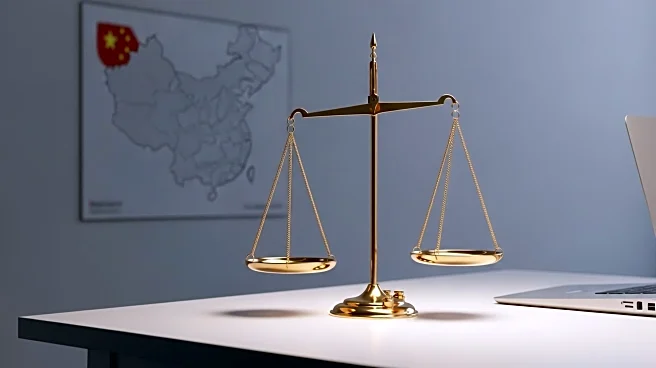What's Happening?
Goldman Sachs has analyzed China's anti-involution campaign, predicting that it will benefit certain sectors while others may not see significant improvements. Tim Moe from Goldman Sachs has introduced an 'involution barometer' to assess the impact of these efforts, particularly on older economy sectors like solar and cement industries. The campaign aims to address excessive competition and overwork, potentially leading to improved profits in 2026. However, there is concern that other countries may resist if China attempts to export its excess capacity, which could affect international trade dynamics.
Why It's Important?
China's anti-involution campaign is significant as it addresses the issue of excessive competition and overwork, which has been a growing concern in the country's economy. By targeting specific sectors, the campaign could lead to improved profitability and efficiency, particularly in industries like solar and cement. This could have broader implications for global trade, as changes in China's economic strategies often influence international markets. However, potential resistance from other countries could complicate these efforts, affecting China's ability to export excess capacity and impacting global economic relations.
What's Next?
The success of China's anti-involution campaign will depend on the government's ability to implement effective policies and manage international trade relations. If the campaign leads to improved profitability in targeted sectors, it could set a precedent for addressing similar issues in other industries. However, resistance from other countries could pose challenges, requiring diplomatic efforts to navigate trade dynamics. The campaign's outcomes will likely influence China's economic strategies and its role in the global market, with potential implications for international trade policies and economic growth.










